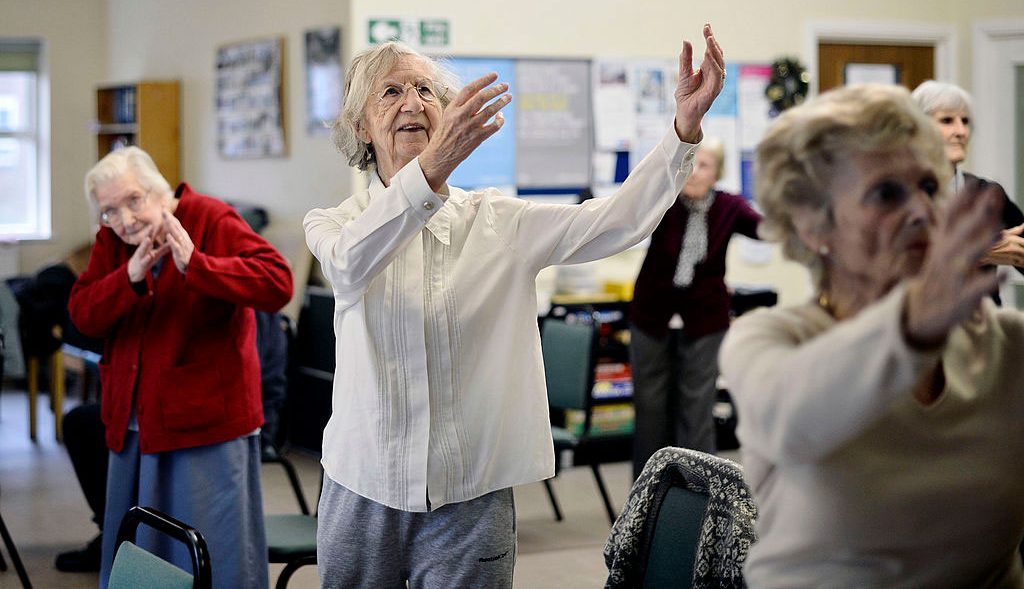Tai Chi Lowers Blood Pressure in Older Adults

Tai Chi, an ancient mind and body practice that involves a series of postures and gentle, flowing body movements, may help you lower your blood pressure.
Several factors raise your risk of high blood pressure, including being overweight, smoking, consuming too much alcohol, lack of exercise, and a family history of the problem.
Simply getting older adds to the likelihood of developing the condition, too. About 65 percent of Americans who are 60 or older have high blood pressure, according to the National Heart, Lung and Blood Institute.
Over time, high blood pressure can contribute to heart disease, strokes, and other serious health problems. But you can usually lower blood pressure that is higher than the healthy range (higher than 120/80) with aerobic exercise, weight loss, a salt-restricted diet, and medication.
Tai Chi may be another way to treat high blood pressure.
YOU MIGHT ALSO LIKE: Yoga for Seniors
This ancient mind and body practice involves a series of postures and gentle, flowing body movements while you concentrate on calm, slow breathing and relaxation. To see if Tai Chi has an impact on blood pressure in older adults, Linda Pescatello, PhD, professor of kinesiology at the University of Connecticut, analyzed 28 studies involving almost 1,300 people with an average age of about 62 who practiced Tai Chi and 919 people the same age who didn’t exercise.
On average, those in the Tai Chi groups performed the slow movements two to three times a week for about an hour each session. After a little more than three months, the elders practicing Tai Chi showed substantial drops in blood pressure. For those who practiced more than three times a week, the average blood pressure reduction was even more dramatic.
The study noted the reduction in blood pressure was comparable to the lowering of blood pressure with prescription medications or aerobic exercise. That suggests Tai Chi may be an important antihypertensive therapy for people who can’t tolerate the side effects of drugs used to treat high blood pressure.
Exactly how the practice lowers blood pressure isn’t known, but the researachers think it may be due to stress reduction. The form of gentle exercise may also have a positive effect on your autonomic nervous system, which controls involuntary bodily functions, including heart rate and blood pressure.
Because it’s a low-intensity exercise, Tai Chi may be especially attractive to older adults who aren’t interested in — or capable of — strenuous workouts. It’s often performed alongside several other people, offering elders a social activity, too.
Previous studies have found Tai Chi has several other potential health benefits, according to the National Center for Complementary and Integrative Health (NCCIH). For example, the practice improves balance and stability in older people and those diagnosed with Parkinson’s disease.
It can also:
- Reduce pain from osteoarthritis in your knees
- Help you cope with fibromyalgia and back pain
- Promote a better quality of life and improved mood in people with serious health problems, such as heart failure and cancer
If you or someone you know is interested in learning Tai Chi, it’s not a form of exercise you can easily learn from a book or video. Ask your doctor or another trusted healthcare source to recommend an experienced instructor so you can learn the movements safely and correctly. The NCCIH website offers in depth information on Tai Chi and a related mind and body practice, Qigong.
Updated:
August 18, 2023
Reviewed By:
Janet O’Dell, RN